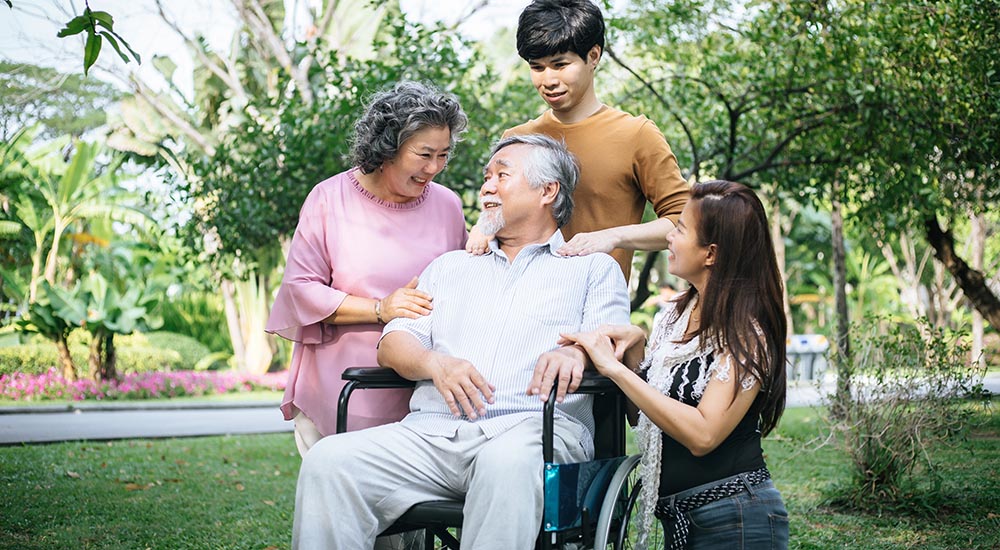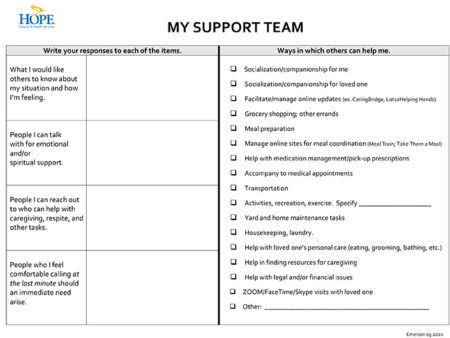
I’m the only one my husband trusts to provide care.
My family is scattered all over the country — how can they help with care when they’re so far away?
No one else can possibly understand what I’m going through.
My siblings can’t help me care for our father, but they’re the first to criticize what I’m doing.
I don’t trust anyone else to provide care for my mother — they may not do things the way I’d like; I’ll just have to fix the mistakes they make, so I might as well do it myself.
I’ve often heard these statements and others like them from family caregivers. Without a doubt, one of the most challenging aspects of providing care to a loved one is trying to work together with family members. The demands of caregiving can be staggering, but when you include the bickering and disagreements that tend to surface when family members interact, the task can be overwhelming.
When I was caring for my elderly mother in the last few years of her life, I created the false narrative that her care was my sole responsibility. Big mistake! In so doing, I found that not only did I assume an excessive amount of responsibility that would ultimately impact my own health, but there were two other critical factors that I failed to consider: (1) I was depriving Mom of receiving care from other family members and benefiting from their unique abilities and companionship; and (2) I was denying family members the opportunity to create positive memories and strengthen their relationship with Mom at the end of her life.
It took me awhile to realize that the key to successful caregiving was putting aside our differences and working together as a family unit to provide quality care for our loved ones.
I’d like to share with you some of the lessons I’ve learned about optimizing family cooperation in the care of a loved one.
How many times have you heard friends say, Please let me know what I can do to help. And your usual response? Thank you, I’ll let you know. But then you don’t follow up. For a variety of reasons. So, the next time someone asks what they can do to help you, be ready to answer specifically.
Prepare in advance a written list of ways people can help you. Then, when someone asks, share the list with them and let them choose what they’re able to do. That way, you’ll get exactly the help you need and you’ll save your friends the dilemma of trying to figure out the best way to help you. It’s a win-win!
Asking for help can be overwhelming, especially when you’re trying to juggle all of the tasks that come with caring for a loved one. As I mentioned, you first need to figure out what kind of help you need. That can range from a simple phone call to check in, to actually having someone stay with your loved one while you run errands or take a much-needed break. At the end of this article is a worksheet that can help you get started.
If you feel uncomfortable requesting help, ask a trusted friend or family member to be your care coordinator. When someone asks what they can do to help you, say, Call my friend Julie — she’s been helping me coordinate and schedule my helpers.
Or, if you’d prefer, you can enlist the help of one of the many online apps that enable you to request and accept offers of help from your friends, family, and neighbors. You are in complete control of determining what kind of help you need, when you need it, and who has access to the site. Here are a few to check out:
Check with local schools and scouting organizations, as students and scouts are engaged in community service projects. Check to see if there are any responsible young people in your community who can help with some of your household tasks like yard work and simple errands.
Senior Centers have a wealth of free resources and services designed not only for senior citizens, but also for those who care for them. Just run a Google search on the phrase: “senior center + [the name of your city]” to find the organization in your community.
Additional Resources
Hope Hospice’s Family Caregiver Education Series
Caregiving with Your Siblings, Family Caregiver Alliance
Holding a Family Meeting, Family Caregiver Alliance
Easing Age-Based Sibling Rivalry in Caregiving, AARP
Long-Distance Caregiving, National Institute on Aging/National Institutes of Health
